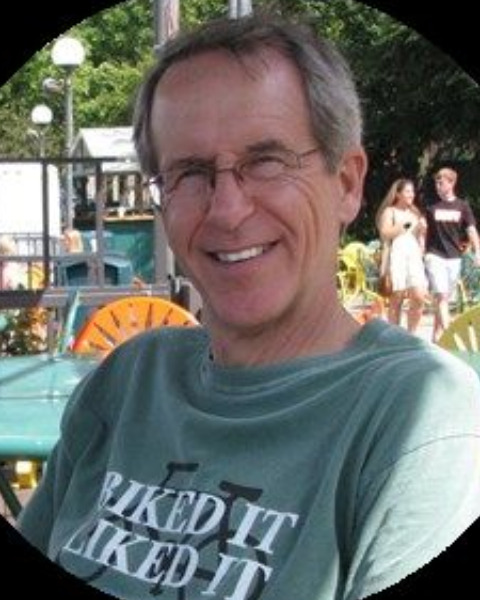Community Development
Better Together: Building Local, Community-Wide Evaluation Capacity
-

Kurt Steuck, PhD
Director of Evaluation and Research
Steuck & Associates LLC
San Antonio, Texas, United States
Presenter(s)
Location: Room 206
Abstract Information: Our community does not have enough evaluators. San Antonio is a fast-growing city of nearly 1.5 million people, and has attracted significant local, regional, and national investments due to problems and opportunities that exist here. With these investments comes the need for measurement of their effectiveness. Unfortunately, we do not have enough local evaluators for external evaluators to bid on RFPs nor fill in-house positions. This leads to difficulties with hiring and to contracts for external evaluators being filled by firms outside the region or state. While this is not inherently bad, we know there are people living in our community with the skill sets and lived experience to be great evaluators. And we know that this is a field with growing prospects and well-paying jobs, a place for interested San Antonio students to find future opportunity. Relatedly, we see an opportunity to strengthen the collective impact of the various actors in San Antonio’s evaluation community. Increasing collaboration among those working in various aspects of evaluation - including educators, those providing evaluation services, and those using evaluation for programmatic decision-making - will facilitate knowledge sharing and identifying of opportunities to enter in the field. And creating collective knowledge will allow those working in the evaluation system to be more effective and responsive in helping people enter and advance in the evaluation field. From these two driving forces - expanding the pool of local evaluators and strengthening the local evaluation ecosystem- the San Antonio Evaluator Pipeline (SAEP) project was born. Project Vision & Mission Our vision is more local evaluators with knowledge of community dynamics and social conditions. Our mission is to strengthen collective knowledge and resources, foster cross-sector collaboration, and provide opportunities for San Antonio students to gain awareness of and enthusiasm for evaluation as a career choice. Key Project Details SAEP project co-directors, Dr. Kurt Steuck (Steuck & Associates LLC) and and colleagues have assembled a cross-sector roster of participants, including over 70 representatives from local institutions of higher education, independent school districts, nonprofits, government agencies, and funding organizations. Project activities are taking place in three phases: data collection and analysis), resource and material creation, and dissemination and future planning. We will produce: • A professional development resource directory. • A job description repository and list of related skills. • Advocacy and awareness materials for use with adults and youth. • A dissemination plan for future sustainability. • An implementation guide for other communities. We are also focused on establishing a thriving cross-sector community with this project. A follow-up survey distributed after our March 1 kick-off meeting showed 95% of respondents want to engage in lunch and learns (either as attendees, presenters, or both) with other evaluation community members. SAEP is mapping a course for establishing a robust, city-wide community of practice. This presentation will explore where we are with the process, what we’re learning along the way, and demo semifinal versions of products mentioned above.
Relevance Statement: The San Antonio Evaluator Pipeline (SAEP) project is being spearheaded by Dr. Kurt Steuck, who has 40+ years of experience in education and training research and evaluation. Katie Sirakos, Founder & Owner of Spark Storytelling, was an early contributor. Strategic storytelling is critical in collective impact work. While we are very clear that SAEP gatherings are places for two-way dialogue, uniting busy professionals across sectors to do this work requires a high degree of clear, concise, and compelling initial vision-setting. We are learning about effective engagement – tactics and messages- and will share this information as part of our presentation. We are also planning convenings – the above-mentioned lunch and learns – for project participants to share information with each other. Facilitating this community storytelling is a key piece of how the SAEP project aims to bring value to San Antonio’s evaluation community members and potential evaluators. Our conference presentation will share our learnings about this process, specifically about what we are learning about storytelling as a vehicle for bridging connections across sectors. As with the initial messaging for project participants, communicating with those not currently in the evaluation field (e.g., students in evaluation-adjacent fields, staff in non-profits) – the advocacy piece of this project – requires thoughtful storytelling. We believe effectively sharing what the evaluation community does, why it matters, and how others have entered evaluation careers will spark interest in those from diverse backgrounds to consider the field. Our presentation will share what we are learning about this messaging and more about our specific plans for outreach into the broader community. Beyond the relevance of our project to this conference’s theme of storytelling, we believe presenting on this community-wide collective impact project will generate conversation and learning that will be valuable to AEA members from across the country. Learning to collaborate across organizations and sectors is key to generating better-informed evaluation processes that are responsive to and reflective of the community from which they come. We hope this project will be a helpful model for those charting a similar course. Finally, in aggregating and disseminating evaluator job descriptions and skill sets, SAEP is using the AEA Evaluator Competencies as a framework. The organized skill sets will be disseminated to educators for inclusion in their courses, seminars and workshops. Applying the AEA Evaluator Competencies to the dissemination of the skill sets will help those in the community who are less engaged in evaluation (e.g., some non-profits) develop a deeper understanding of evaluation as a profession.
